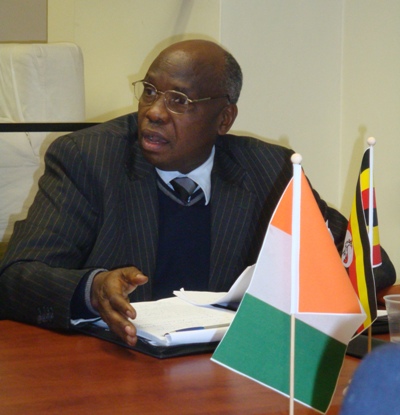The Minister of Gender, Labour and Social Development, Hon. Janat B. Mukwaya has called on International Labour Organisation (ILO) member states to take “urgent action” against the effects of new global economic trends to avert negative social impacts.
Addressing the 106th session of the International Labour Organisation Conference in Geneva, Switzerland on Tuesday, Mukwaya noted that there is overwhelming evidence that the new development agenda is taking its toll on the global economy with Governments, employers and workers getting increasingly concerned about the effects of the economic trends on people, enterprises, employment, social cohesion and ultimately, stability.
“The World of work is faced by numerous problems of, inter-alia, poverty, income inequality, youth unemployment, gender inequity, and labour migration,” The Minister said, adding: “This calls for urgent action.”
She underscored the need for comprehensive and coordinated measures to cope with the new trends in the global economy as well as tocombat possible negative social consequences.
She was optimistic that if implemented copiously, the ILO’s range of critical initiatives such as the future of Work Centenary Initiative, Global Initiative on Decent Jobs for Youth, and the End to Poverty Centenary Initiative, which focuses on the 2030 Agenda for sustainable Development, would help bring fresh hope to tackling the emerging challenges.
“The entire world and Africa in particular is experiencing a fast growing young population. The challenge of youth unemployment is a serious concern felt globally; it is therefore, incumbent on us to focus our efforts towards a strong ILO that is able to effectively deal with the problem.” Mukwaya observed.
She hinted that promoting employment, social protection, and fundamental principles and rights at work and social dialogue through the ILO’s Decent Work Agenda constitutes an effective policy package to respond to the current economic trends.
Furthermore, she said the vision and strategy adopted in the 2008 ILO Declaration on Social Justice for a Fair Globalization is fully relevant in this context.
Mukwaya, who led the Ugandan delegation comprising of among other officials the Permanent Secretary of the Gender Ministry, Pius Bigirimana, Director Labour, Martin Wandera and the Acting Commissioner Labour, Patrick Okello, said additional measures to safeguard a supportive environment forinvestment and growth is required, particularly for small enterprises and cooperativesemploying the largest number of working women and men in all economies.
She said the Uganda Government was reserving no energy in tackling the issue of unemployment especially among youth through the initiation of various initiatives including the new Green Jobs and Fair Market Programmes.
On the eve of this year’s International Labour Day, the Gender Ministry revealed in a statement that the Green Jobs Programme, which commences in the new Financial Year, it is expected to create 500,000 jobs for youths.
The Ministry also revealed that it had finalized the development of a National Apprenticeship Framework. The Framework is expected to facilitate the use of work based learning as a tool for narrowing the skills mismatch among the employed and the unemployed
The Uganda Women Entrepreneurship Programme (UWEP) and Youth Livelihood Programme (YLP) were other key initiatives expected to jointly create over 500,000 jobs.
Mukwaya assured the conference that in an effort to ensure that social progress is not undermined, Uganda reaffirms the ILO Declaration on Fundamental Principles and Rights at Work, namely: freedom of association and the effective recognition of the right to collective bargaining; the elimination of all forms of forced or compulsory labour; the effective abolition of child labour; and the elimination of discrimination in respect of employment and occupation.
She further called for strong coherence between financial, trade, employment, labour, development, social and environmental policies to support sustainable economic growth to realise decent work outcomes.
Meanwhile, Uganda will at the same conference next week be assuming its seat on the ILO Governing council. Uganda got elected to the high-level position during an ILO conference in the Algerian capital, Algiers in April. This was after a strong-willed campaign that saw Uganda beat Kenya, Tanzania, Sudan and Ethiopia to the position. The governing body, the executive council of the ILO, determines ILO policy, including the programme and budget.
The member States of the ILO meet at the International Labour Conference, held every year in Geneva, Switzerland, in the month of June.The Conference, which is often called an international parliament of labour, has several main tasks among other including; crafting and adoption of international labour standards in the form of Conventions and Recommendations, and supervises the application of Conventions and Recommendations at the national level.
In 2019, ILO will hold its Centenary Celebrations marking 100 years of a long history of contributing to the betterment of livelihoods and working conditions through the adoption of 190 Conventions and over 200 recommendations.
Mukwaya described the longevity of the organization as “no mean achievement” given the high mortality rate of organizations.





